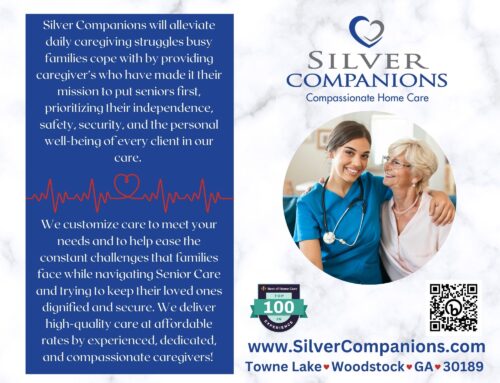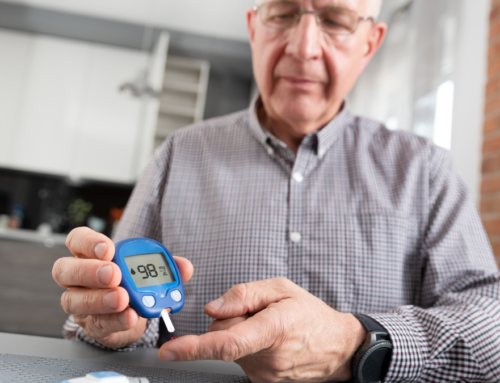
Colon Cancer in Seniors: What you Need to Know
Since March is Colon Cancer Awareness Month, we want to provide some helpful information to help prevent it, or at least detect it early to provide the best chance of treatment. Colorectal cancer is the third most common form of cancer in the United States. It can occur at any age, however, it is most often diagnosed in people aged 50 or older. If detected early, colorectal cancer can be treated successfully, but unfortunately, many seniors don’t get screened for the disease at all, or don’t get screened until it’s too late.
With the aging population, colon cancer is becoming more common in seniors.
The good news? It’s not as bad or deadly as it used to be! With modern medicine and proactive lifestyle habits, like exercising regularly, you can stave off this potentially lethal disease for quite some time if diagnosed early enough with treatment programs that are proven effective at stopping its spread before any further damage occurs.
When seniors suffer from colorectal cancer, their age should not prevent them from medical treatment that will allow them to live a normal and productive life. Treatment programs for seniors can be customized to suit their unique needs and help seniors maintain as much independence as possible during their fight against the disease.
Symptoms of Colon Cancer you Should Watch For
The most common symptom of colon cancer is rectal bleeding, which can be either bright red or very dark in color. This could be a sign that there are abnormal growths in the lower intestine that are tearing through its wall and causing internal bleeding.
Other symptoms of colon cancer include:
- Abdominal cramping and pain
- A feeling of pressure in the stomach or lower back
- Changes in bowel habits – either diarrhea or constipation
- Stool that is narrower than usual
- Weight loss for no reason
As you can see, most seniors suffering from these symptoms probably aren’t as eerily as those specific as the early warning signs of lung, breast or pancreatic cancer. Unlike seniors suffering from those afflictions, seniors diagnosed with colon cancer tend to be a little more aged and its appearance isn’t as obvious to family members who might happen on them unexpectedly.
How is Colon Cancer Diagnosed?
If seniors experience the above symptoms or suspect something may be wrong, they should see their doctor immediately. Waiting can drastically reduce seniors quality of life by shortening its duration and/or making seniors more ill if treatment options aren’t available in time to stop cancerous cells from metastasizing all over seniors body; particularly seniors who are already suffering preexisting or underlying conditions such as heart disease, diabetes, Alzheimer’s or Parkinson’s disease.
It is important to diagnose colon cancer at an early stage so that the disease can be effectively treated. To do this, your doctor will need information about where and when you were born, what family history (if any) exists among yourself and close relatives, as well as details on personal medical conditions such-an allergies/hypersensitivities etc. These are all things which may help determine if there could potentially be something else going on with regards to how it spread internally before coming into contact with external bodily tissues.
With early diagnosis, colon cancer has a very high cure rate. The best way to diagnose this type of disease? Your doctor will perform either anoscopy or sigmoidoscope with flexible bowel preparation before performing other procedures that may be needed in order for them to find out exactly what you’re experiencing.
Treatment Options Available for Colon Cancer
Treatment for seniors usually involves a combination of chemotherapy and/or radiation at different times to ensure the cancer doesn’t spread. Another option is surgery, which can remove tumors or block them from interfering with major blood vessels that feed internal organs. Of course, seniors who are too frail for such invasive procedures may opt for other treatment options.
Once seniors are diagnosed with colon cancer, their doctor will explain the various treatment options available to them, based on their specific circumstances, as well as what they can expect from each. Once they understand the pros-and-cons of each option, they should be able to make an informed decision that takes into account their personal preferences and medical conditions.
Tips for living a healthy life after being treated for colon cancer
- Get moving! Exercise is a great way to improve your overall health and well-being.
- Eat healthy foods to give your body the nutrients it needs.
- Drink plenty of water to stay hydrated.
- Manage stress levels by practicing relaxation techniques such as yoga or meditation.
- Make time for yourself and enjoy activities that bring you joy.
- Connect with others who have gone through similar experiences and find support in their company.
Recovery and Follow-up Care for Colon Cancer
It is very common for seniors to need help recovering from colon cancer treatment. This could mean anything from receiving physical therapy at home, to making sure they’re eating healthy foods that are rich in protein, vitamins, and minerals the body needs to heal itself after it has experienced the trauma of fighting off abnormal cells
After seniors have completed their cancer treatment, they typically visit their doctor every three months for a checkup. If they notice any changes in their bowel habits and/or lack of energy and appetite that lasts longer than two weeks, they should call their doctor as soon as possible to schedule an appointment. Sometimes colon cancer recurs even after seniors feel like they are cured.
Colon cancer in seniors is unfortunately a common occurrence, but with the right care and support, recovery is possible. We hope this article has provided you with some valuable information about colon cancer and the best ways to support your loved ones through their treatment. If you need assistance finding eldercare services that can help your loved one during their recovery, please don’t hesitate to reach out to us. Our team of experts are here to help! Give us a call today at (678) 494-8129 or email us at info@SilverCompanions.com.





